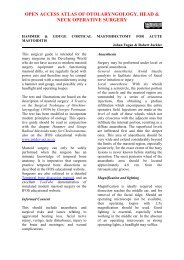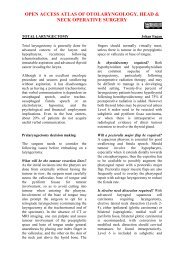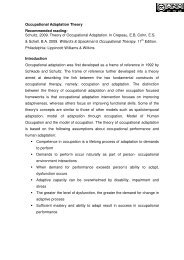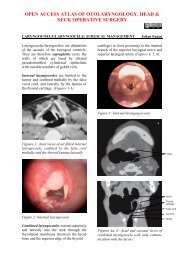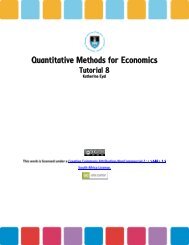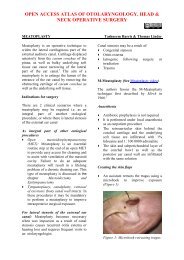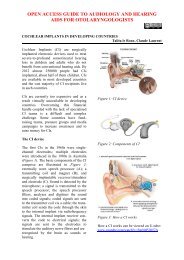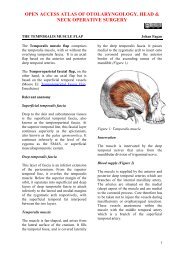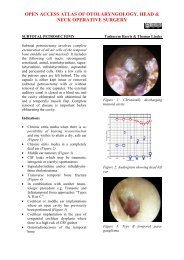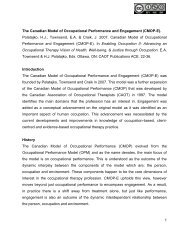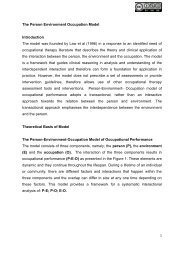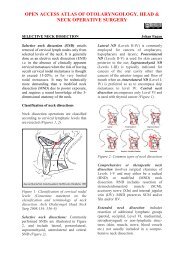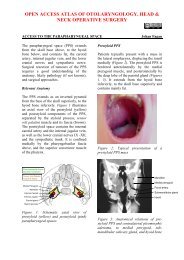Decreasing the Burden of Childhood Disease - Western Cape ...
Decreasing the Burden of Childhood Disease - Western Cape ...
Decreasing the Burden of Childhood Disease - Western Cape ...
You also want an ePaper? Increase the reach of your titles
YUMPU automatically turns print PDFs into web optimized ePapers that Google loves.
Risk Factors For Specific <strong>Disease</strong>s<br />
1. Risk factors for Malnutrition (See Appendix 1)<br />
1.1. Immediate, proximal determinants <strong>of</strong> malnutrition<br />
(a) Inadequate dietary intake<br />
The mean energy intake <strong>of</strong> children in all Provinces, including <strong>the</strong> <strong>Western</strong><br />
<strong>Cape</strong>, is below that recommended for age. viii Infections result in increased<br />
energy demand, as well as reduced intake through loss <strong>of</strong> appetite,<br />
shortness <strong>of</strong> breath, and fatigue. These matters are worse with gastroenteritis,<br />
when <strong>the</strong> absorption <strong>of</strong> nutrients may be reduced.<br />
(b) Frequent infections and infestations<br />
Infectious disease particularly childhood diarrhea, HIV and intestinal<br />
helminth infestation all contribute to malnutrition, especially in children<br />
whose dietary intakes are marginal.<br />
1.2. Underlying determinants <strong>of</strong> malnutrition<br />
(a) Inadequate access to food<br />
Food poverty<br />
A survey carried out in October 1995 showed that households<br />
representing 43 percent <strong>of</strong> South Africans live in food poverty.<br />
Almost a quarter (23,9%) <strong>of</strong> households in <strong>the</strong> <strong>Western</strong> <strong>Cape</strong> live in<br />
food poverty ix<br />
(b) Inadequate care for women and children<br />
Factors that may impact adversely on <strong>the</strong> care <strong>of</strong> women and children<br />
include:<br />
‣ Women’s workload and time constraints;<br />
‣ insufficient access to information about breastfeeding and infant<br />
feeding practices; and<br />
‣ <strong>the</strong> status <strong>of</strong> women in households, families, relationships and<br />
communities, in particular <strong>the</strong>ir status in making autonomous<br />
decisions regarding <strong>the</strong>ir children<br />
‣ Maternal and child-care practices. Early initiation, <strong>the</strong> degree <strong>of</strong><br />
exclusivity, and <strong>the</strong> duration <strong>of</strong> breast-feeding are among <strong>the</strong> most<br />
important child-care practices affecting infant and young child<br />
health and nutrition. Exclusive breast-feeding in <strong>the</strong> first 4 to 6<br />
months <strong>of</strong> life provides optimal nutrition and protection. The 1998<br />
Demographic and Health Survey found that <strong>the</strong> median duration <strong>of</strong><br />
breast-feeding in South Africa varies between 10 months in <strong>the</strong><br />
<strong>Western</strong> <strong>Cape</strong> to 20 months in <strong>the</strong> Nor<strong>the</strong>rn Province. The o<strong>the</strong>r<br />
provinces show a median duration <strong>of</strong> about 14-17 months. The<br />
<strong>Western</strong> <strong>Cape</strong>, <strong>the</strong>refore, has <strong>the</strong> shortest median duration <strong>of</strong><br />
breast-feeding. Food intake also depends on o<strong>the</strong>r infant and childfeeding<br />
practices. Growth faltering frequently arises during <strong>the</strong><br />
13



